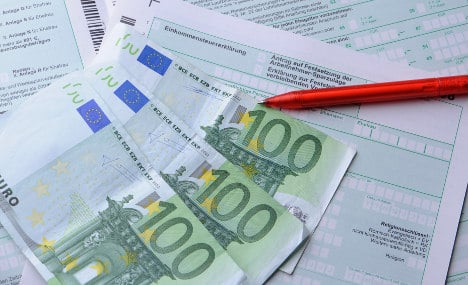The sum would be the upper limit, coalition insiders told daily Passauer Neue Presse.
The new measures, set to be presented within the year, will address some 50 different aspects of the tax code, the paper said.
By 2013 the Finance Ministry would begin issuing preliminary tax returns to taxpayers, who could then choose to amend them if necessary, instead of having to file themselves each year.
Taxpayers will also see the simplifications in deductions for items such as child care costs.
During talks between the Finance Ministry and finance policy experts from Merkel’s conservative Christian Democrats (CDU) and their junior coalition partners the pro-business Free Democrats (FDP), the two sides showed “a high level of consensus,” according to parliamentary liaison to the Finance Ministry Hartmut Koschyk.
Ideas from state finance ministries, the coalition parties and the Federal Finance Ministry are all included in the plan, the paper said.



 Please whitelist us to continue reading.
Please whitelist us to continue reading.
Member comments